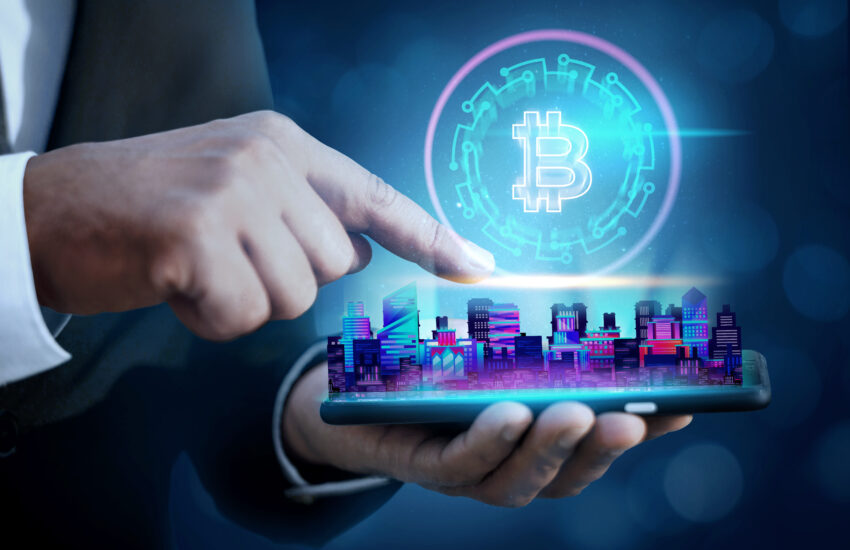When most people hear the word Blockchain, they immediately think of Bitcoin or other cryptocurrencies. While it’s true that blockchain technology powers digital currencies, its potential goes far beyond that. Around the world—and increasingly in Pakistan—blockchain is transforming industries such as finance, education, healthcare, and even governance.
For students and young professionals, understanding blockchain is not just about crypto—it’s about preparing for the future of technology and careers in a digital economy.
What is Blockchain in Simple Terms?
Blockchain is a digital ledger or database where information is recorded securely, transparently, and permanently. Unlike traditional systems, where a single authority (like a bank or government) controls data, blockchain distributes this data across a network of computers.
This means:
- Records are tamper-proof
- Data is transparent and trackable
- Transactions are faster and more secure
Think of blockchain as a notebook that everyone can see, no one can erase, and everyone can trust.
Real-World Applications of Blockchain in Pakistan
1. Digital Banking and Payments
Pakistan has millions of people without access to traditional banks. Blockchain can help by providing:
- Secure mobile payments
- Faster cross-border transactions
- Reduced banking costs
Fintech companies in Pakistan are already exploring blockchain to enable cheaper and faster remittances from abroad, which is crucial since remittances make up a large part of Pakistan’s economy.
2. Supply Chain Transparency
From mangoes to textiles, Pakistan is a major exporter. Blockchain can track products from farm to factory to buyer, ensuring authenticity and quality.
- Prevents counterfeit products
- Builds trust with international buyers
- Ensures farmers and small businesses get fair value
3. Education and Credential Verification
Fake degrees and certificates are a known problem in Pakistan. Blockchain can solve this by:
- Storing academic records securely
- Making credentials instantly verifiable for employers and universities
- Reducing fraud in the education system
Universities around the world are adopting blockchain-based digital certificates, and this could be a game-changer for Pakistan’s education sector.
4. Healthcare Records
Medical data is often scattered, lost, or inaccessible in Pakistan. Blockchain can:
- Store patient records securely
- Allow doctors access to accurate medical history
- Prevent tampering of health reports and prescriptions
This would not only improve healthcare delivery but also help in research and disease management.
5. Land and Property Registration
Land disputes are common in Pakistan due to unclear or tampered records. Blockchain-based land registries can:
- Digitally secure ownership records
- Prevent fraud or illegal transfers
- Speed up the buying and selling process
Pilot projects in Sindh and Punjab are already testing blockchain for land record management.
6. Government and Public Services
Blockchain can bring transparency and trust in governance. Possible uses include:
- Transparent voting systems
- Tracking of government funds and spending
- Reducing corruption in welfare distribution
If adopted widely, blockchain could strengthen accountability in Pakistan’s institutions.
7. Freelancing and Digital Economy
Pakistan is one of the top freelancing nations in the world. Blockchain can help freelancers by:
- Providing faster, cheaper payment systems
- Using smart contracts to ensure they get paid after work completion
- Reducing dependency on costly international platforms
This directly supports Pakistan’s growing digital economy.
Challenges of Blockchain in Pakistan
While the opportunities are huge, Pakistan still faces challenges:
- Lack of awareness and training among students and professionals
- Unclear government regulations around blockchain and cryptocurrency
- Limited infrastructure and digital adoption in rural areas
Overcoming these challenges will require education, supportive policies, and collaboration between the public and private sectors.
Future of Blockchain in Pakistan
Blockchain is not just about Bitcoin. It is about trust, transparency, and innovation. For students in Pakistan, learning about blockchain today means preparing for careers in:
- Blockchain development
- Cybersecurity
- Fintech and banking
- Data management
- Digital governance
By 2030, blockchain is expected to contribute trillions of dollars to the global economy. If Pakistan embraces it early, students and entrepreneurs could play a leading role in this digital transformation.
Key Takeaways
- Blockchain is more than cryptocurrency; it is a trust-building technology.
- Real-world uses in Pakistan include banking, supply chains, education, healthcare, land records, governance, and freelancing.
- Students who learn blockchain now will be better prepared for future careers in technology and business.

